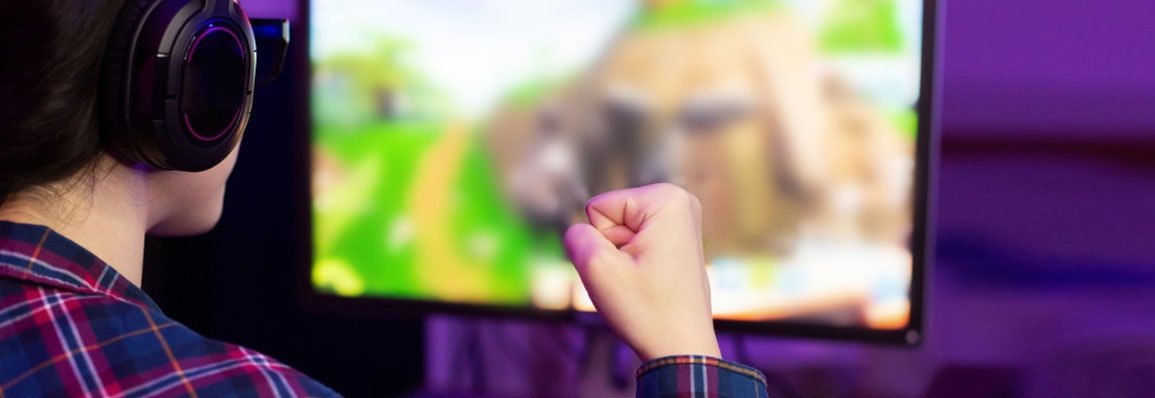There is a growing belief that there are links between gaming and gambling
The theme of GambleAware Week 2020, an annual initiative to increase awareness of gambling and gambling related harm, is what’s happening behind the screens? Social restrictions due to COVID-19 have changed the way we interact and entertain ourselves and there is evidence suggesting there has been an increase in online gambling over this period.
But is COVID-19 and an increasing dependence on screens the only contributor to the increase in online, and indeed, all types of gambling?

While there are very few studies to-date that have examined the relationship between adolescent video gaming and gambling, there is a growing belief that there are links between the two. “Video games and gambling contain some similar elements,” says Jeff Taylor, Specialist Counselling Manager, CatholicCare Sydney. “Both provide intermittent rewards, elements of randomness, and can be experienced as arousing or relaxing activities creating a distraction from normal lives,” he adds.
Undoubtedly, there are also some obvious differences between the two. Video games involve elements of learning specific skills while gambling is associated with randomness rather than skill. There is, however, the potential for younger gamers to believe they can apply the same skills to gambling and influence the outcome or even master the skills necessary to help them win in their gambling activities.
Additionally, the rise of simulated gambling games, where the player plays with points or virtual money, is introducing young people to the concept of online gambling early. These games are readily available and are designed to be fun with the odds geared to winning. The outcome being that young people develop the belief that gambling is harmless.
A 2013 study by the Victorian Responsible Gambling Foundation found that a large proportion of young people have had a direct experience of gambling before the age of 18. The availability of gambling on mobile devices and increased promotion by sports betting companies is normalising gambling and while this advertising is not directly targeting young people, they are still susceptible to the messages.
Sally Gainsbury from Sydney University tells us that 28% of Australian gaming adolescents reported that they migrated to gambling as a result of social casino games (online simulated gambling games) because they were drawn in by the excitement and the challenge. In fact, one teenager said, “I just decided well if I’m gonna do that … … I might as well just play online slots with the real money.”
With an estimated 17,000 gambling websites available, it is essential that we educate young people of the dangers. CatholicCare works in 150 different Catholic schools in NSW and in line with the Office of Responsible Gambling recommendations, recognises that a whole of school approach is required for early intervention and prevention of harmful gambling behaviours.
CatholicCare also offers a Gambling Help service and Family Recovery program for family members and financial counselling for those affected by problem gambling.
Parenting HUB | For more tips and practical advice on building positive relationships with your child.
The resources in our Parenting HUB are put together by our family specialists who work with families across Sydney every day. If you would like to know more about this topic, please fill in our 'Contact Us' form and we'll get in touch. You can also call our professional Parent Line NSW counsellors on 1300 1300 52 for individual advice.
Disclaimer: This article does not give professional advice. The contents constitute general information of a summary nature of interest and relevance at the time of publication. You should not rely on the contents as professional advice but should seek, formal advice in particular matters relevant to your particular situation
If you or anyone you know would like help please call our team on 13 18 19 or contact us online.